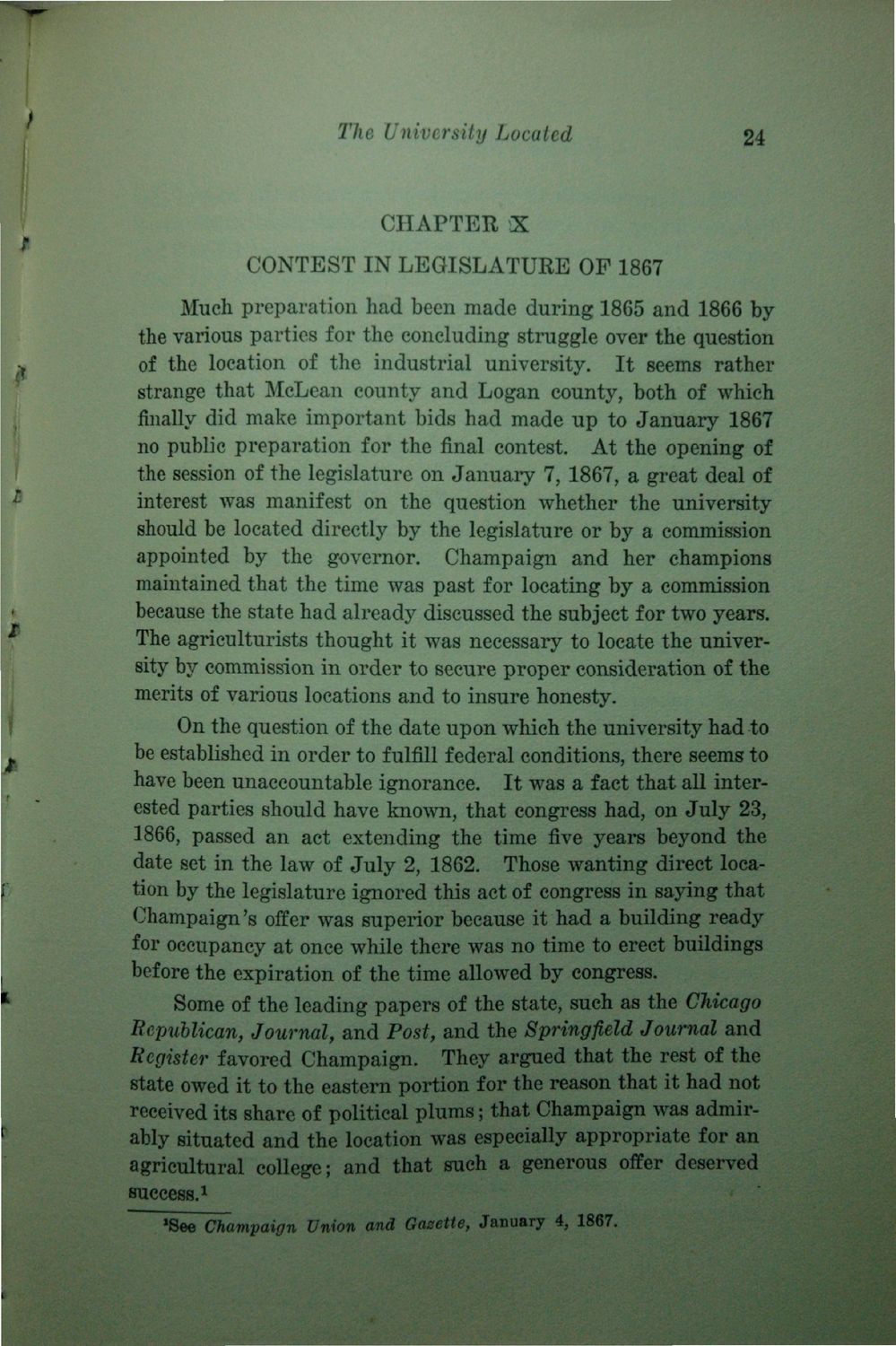| |
| |
Caption: Book - History of the University (Powell)
This is a reduced-resolution page image for fast online browsing.

EXTRACTED TEXT FROM PAGE:
The University Located 24 CHAPTEB iX CONTEST IN LEGISLATURE OF 1867 Much preparation had been made during 1865 and 1866 by the various parties for the concluding struggle over the question of the location of the industrial university. I t seems rather strange that McLean county and Logan county, both of which finally did make important bids had made up to January 1867 no public preparation for the final contest. At the opening of the session of the legislature on January 7, 1867, a great deal of interest was manifest on the question whether the university should be located directly by the legislature or by a commission appointed by the governor. Champaign and her champions maintained that the time was past for locating by a commission because the state had already discussed the subject for two years. The agriculturists thought it was necessary to locate the university by commission in order to secure proper consideration of the merits of various locations and to insure honesty. On the question of the date upon which the university had to be established in order to fulfill federal conditions, there seems to have been unaccountable ignorance. It was a fact that all interested parties should have known, that congress had, on July 23, 1866, passed an act extending the time five years beyond the date set in the law of July 2, 1862. Those wanting direct location by the legislature ignored this act of congress in saying that Champaign's offer was superior because it had a building ready for occupancy at once while there was no time to erect buildings before the expiration of the time allowed by congress. Some of the leading papers of the state, such as the Chicago Republican, Journal, and Post, and the Springfield Journal and Register favored Champaign. They argued that the rest of the state owed it to the eastern portion for the reason that it had not received its share of political plums; that Champaign was admirably situated and the location was especially appropriate for an agricultural college; and that such a generous offer deserved success.1 *See Champaign Union and Gazette, January 4, 1867.
| |